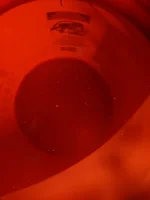The water came out pretty clean this year and the flow is still good.
I used to do a complete drain with turning the water off, extinguishing the flame, opening the hot water faucet, and then use a cap with a hose attached to it to drain the remainder with a pail.
However it was an absolutely huge PITA to get the pilot ignited again. Every. Single. Time. So over the last several years I have just switched it onto vacation mode, drained about eight gallons from underneath a few times a year, and left everything else running as/is.
I don't really see any sediment. But part of me is thinking that maybe what I really need to do is go back to the old method and just buy a really long igniter.
I'm one of those guy who likes his home to operate like a Corolla. Keep everything low cost, invest in quality components, and make it all last forever (with a good spare in the garage just in case). I guess all of this is just first world problems. I don't think I'm damaging the water heater this way but if an expert tells me I am, then I'll change my ways.


